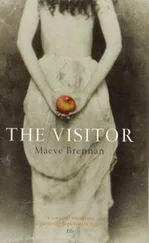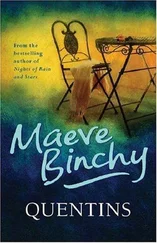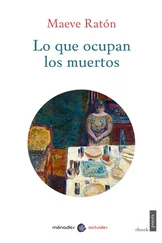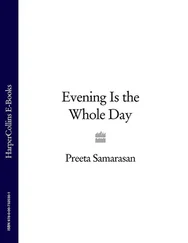Maeve Binchy - Evening Class
Здесь есть возможность читать онлайн «Maeve Binchy - Evening Class» весь текст электронной книги совершенно бесплатно (целиком полную версию без сокращений). В некоторых случаях можно слушать аудио, скачать через торрент в формате fb2 и присутствует краткое содержание. Жанр: Современная проза, на английском языке. Описание произведения, (предисловие) а так же отзывы посетителей доступны на портале библиотеки ЛибКат.
- Название:Evening Class
- Автор:
- Жанр:
- Год:неизвестен
- ISBN:нет данных
- Рейтинг книги:3 / 5. Голосов: 1
-
Избранное:Добавить в избранное
- Отзывы:
-
Ваша оценка:
- 60
- 1
- 2
- 3
- 4
- 5
Evening Class: краткое содержание, описание и аннотация
Предлагаем к чтению аннотацию, описание, краткое содержание или предисловие (зависит от того, что написал сам автор книги «Evening Class»). Если вы не нашли необходимую информацию о книге — напишите в комментариях, мы постараемся отыскать её.
Evening Class — читать онлайн бесплатно полную книгу (весь текст) целиком
Ниже представлен текст книги, разбитый по страницам. Система сохранения места последней прочитанной страницы, позволяет с удобством читать онлайн бесплатно книгу «Evening Class», без необходимости каждый раз заново искать на чём Вы остановились. Поставьте закладку, и сможете в любой момент перейти на страницу, на которой закончили чтение.
Интервал:
Закладка:
And after twelve years she started hearing from her sisters. Inconsequential letters from Rita and Helen. Nothing that referred to anything that she had written herself. No mention that they had heard from her on birthdays and at Christmas and read all the letters she had written to their parents. Instead they wrote about their marriages and their children and how times were hard and everything was expensive and time was short, and everything was pressure these days.
At first Signora was delighted to hear from them. She had long wanted something that brought her two worlds together. The letters from Brenda went a little way along the road but didn't connect with her past, with her family life. She replied eagerly, asking questions about the family and how her parents were, and had they become at all reconciled to the Situation. Since this drew no response, Signora wrote different kinds of questions, seeking their views on subjects from the IRA hunger strikers, to Ronald Reagan being elected President of America, and the engagement of Prince Charles and Lady Di. None of these were ever answered, and no matter how much she told them about Annunziata, they never commented on it at all.
Brenda's note said she wasn't at all surprised by the arrival of letters from Rita and Helen.
'Any day now you'll be hearing from the brothers as well,' she wrote. 'The hard truth is that your father is very frail. He may have to go into hospital on a permanent basis, and then what will become of your mother? Nora, I tell you this harshly, because it is harsh and sad news. And you know well that I think you were foolish to go to that godforsaken spot on a mountain and watch the man who said he loved you flaunt his family in front of you… but still by God I don't think you should come home to be a minder to your mother who wouldn't give you the time of day or even reply to your letters.'
Signora read this letter sadly. Surely Brenda must be mistaken. And surely she had read the situation all wrong. Rita and Helen were writing because they wanted to keep in touch. Then came the letter saying that Dad was going to hospital and wondering when Nora would come home and take things over.
It was springtime and Annunziata had never looked more beautiful. But Signora looked pale and sad. Even the people who did not trust her were concerned. The Leone family who sold the postcards and little drawings called to see her. Would she like a little soup, stracciatella , it was a broth with beaten egg and lemon juice? She thanked them but her face was wan and her tone was flat. They worried about her.
Across the piazza in the hotel, the word reached dark handsome Mario and Gabriella his solid dutiful wife that Signora was not well. Perhaps someone should send for the dottore .
Gabriella's brothers frowned. When a woman had a mystery frailty in Annunziata it often meant one thing. Like that she was pregnant.
The same thought had crossed Mario's mind. But he met their glances levelly. 'Can't be that, she's nearly forty,' he said.
Still they waited for the doctor, hoping he would let fall some information over a glass of sambucca, which was his little weakness.
'It's all in the head,' the doctor said confidentially. 'Strange woman, nothing physical wrong with her, just a great sadness.'
'Why does she not go home to where she comes from then?' asked the eldest brother of Gabriella. He was the head of the family since his father had died. He had heard the odd troublesome rumour about his brother-in-law and Signora. But he knew it couldn't possibly be true. The man could not be so stupid as to do something like that right on his doorstep.
The people of the village watched as Signora's shoulders drooped and not even the Leone family were able to throw any light on it. Poor Signora. She just sat there, her eyes far away.
One night when his family slept Mario crept in and up the stairs to her bed.
'What has happened? Everyone says that you have an illness and that you are losing your mind,' he said, as he put his arms around her and pulled up the quilt that she had embroidered with the names of Italian cities, Firenze, Napoli, Milano, Venezia, Genova. All in different colours and with little flowers around them. It was a labour of love, she told Mario. When she did the stitching she thought how lucky she was to have come to this land and to live near the man she loved; not everyone was as lucky as she was.
That night she didn't sound like one of the luckiest women in the world. She sighed heavily and lay like lead on the bed instead of turning to welcome Mario joyfully. She said nothing at all.
'Signora.' He called her that too, like everyone else. It would have marked him out if he had known her real name. 'Dear, dear Signora, many many times I have told you to go away from here, that there is no life for you in Annunziata. But you insist that you stay and it is your decision. People here have begun to know and like you. They tell me you had the doctor. I don't want you to be sad, tell me what has happened.'
'You know what has happened.' Her voice was very dead.
'No, what is it?'
'You asked the doctor. I saw him go into the hotel after he left me. He told you I am sick in the mind, that's all.'
'But why? Why now? You have been here so long when you couldn't speak Italian, when you knew nobody. That was the time to be sick in the mind, not now when you have been ten years as a part of this town.'
'Over eleven years, Mario. Nearly twelve.'
'Yes, well whatever.'
'I am sad because I thought my family missed me and loved me, and now I realise that they just want me to be a nursemaid to my old mother.' She never turned to look at him. She lay cold and dead without response to his touches.
'You don't want to be with me, happy like it always is and so good?' He was very surprised.
'No, Mario, not now. Thank you very very much but not tonight.'
He got out of bed and came around to look at her. He lit the candle in the pottery holder; her room did not run to a bedside light. She lay there white-faced, her long red hair on the pillow under the absurd coverlet with all the cities' names on it. He was at a loss for words. 'Soon you must do the places of Sicily,' he said. 'Catania, Palermo, Cefalu, Agrigento…'
She sighed again.
He left troubled. But the hills around Annunziata, with their daily carpet of new flowers, had healing powers. Signora walked among them until the colour came back to her face.
The Leone family sometimes packed her a little basket with bread and cheese and olives, and Gabriella the stony-faced wife of Mario gave her a bottle of Marsala, saying that some people drank it as a tonic. The Leone family invited her to lunch on a Sunday and cooked pasta Norma, with aubergines and tomatoes.
'Do you know why it's called pasta Norma, Signora?'
'No, Signora Leone. I'm afraid I don't.'
'Because it's so good it is reaching the same height of perfection as the opera Norma by Bellini.'
'Who was, of course, Sicilian,' Signora finished proudly.
They patted her hand. She knew so much about their country, their village. Who could fail to be delighted with her?
Paolo and Gianna, who had the little pottery shop, made her a special jug. They had written Signora d'Irlanda on it. And they put a little piece of gauze over it with beads at the edge. It was to keep her water fresh at night. No flies could get in, or dust in the hot summers. People came in and did little jobs for the old couple whose house she lived in, so that Signora would not have to worry about earning her rent. And, bathed in all this friendship and indeed love, she became well and strong again. And she knew she was loved here even if she wasn't loved back home in Dublin, where the letters were written with greater frequency, wanting to know her plans.
Читать дальшеИнтервал:
Закладка:
Похожие книги на «Evening Class»
Представляем Вашему вниманию похожие книги на «Evening Class» списком для выбора. Мы отобрали схожую по названию и смыслу литературу в надежде предоставить читателям больше вариантов отыскать новые, интересные, ещё непрочитанные произведения.
Обсуждение, отзывы о книге «Evening Class» и просто собственные мнения читателей. Оставьте ваши комментарии, напишите, что Вы думаете о произведении, его смысле или главных героях. Укажите что конкретно понравилось, а что нет, и почему Вы так считаете.












